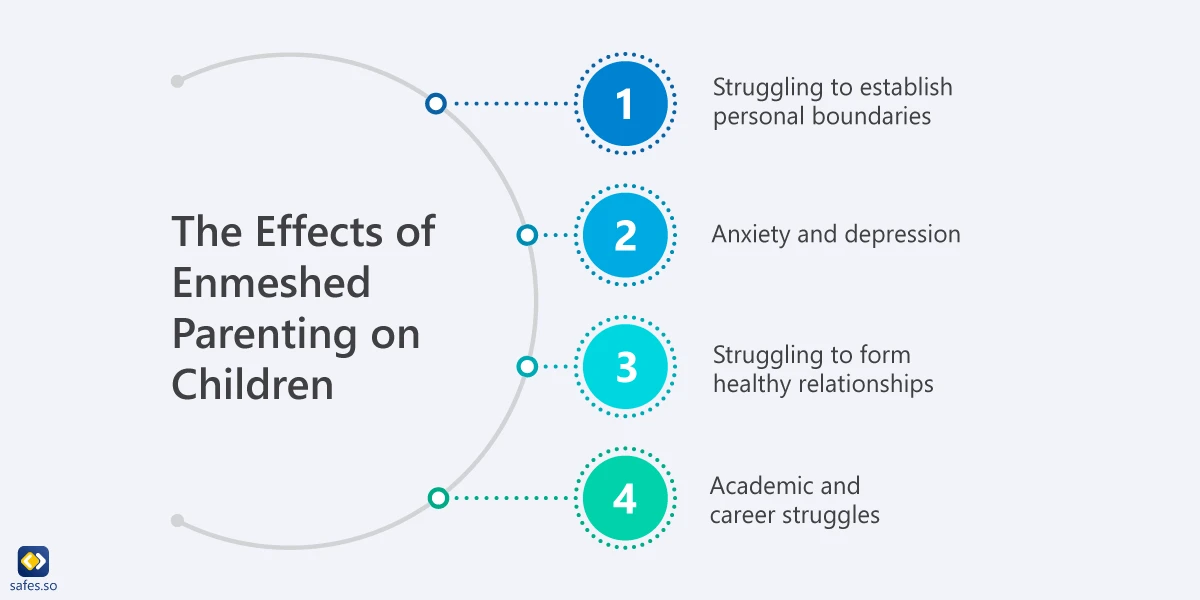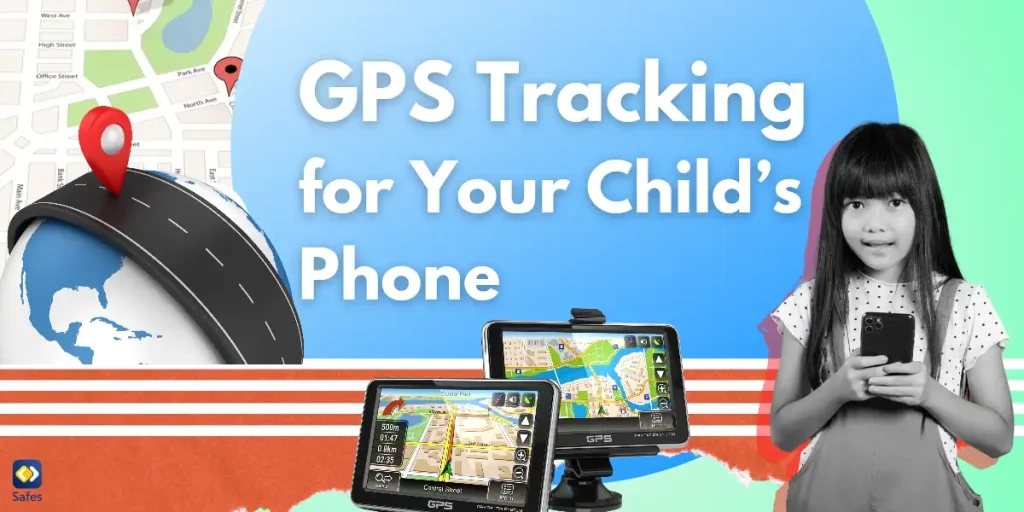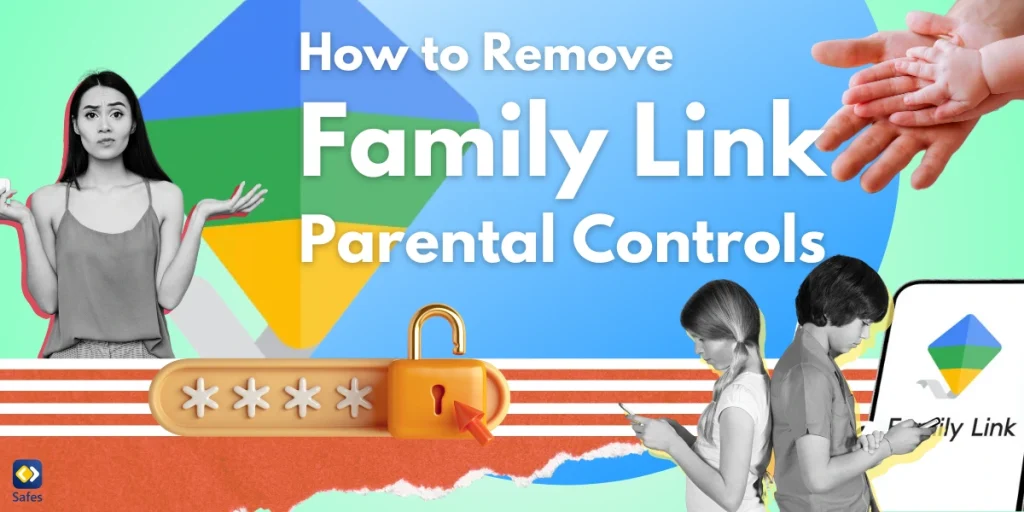Enmeshed parenting is a parenting style that blurs the boundaries between the parent and child, causing the child to feel responsible for the parent’s emotions and well-being. While it may seem like a loving and supportive way to raise a child, enmeshment can have serious negative effects on the child’s development and future. Recognizing enmeshment is crucial for parents who want their children to grow up to be independent, confident, and capable adults. In this blog post, we will dive deep into the concept of enmeshed parenting and explore its impact on children. We will also discuss how to recognize and address enmeshment in your own parenting style and offer tips and strategies for raising healthy, well-adjusted children. So, whether you’re a parent, a caregiver, or just curious about the effects of parenting styles on children, this blog post is for you. Let’s get started!
Download and Start Your Free Trial of the Safes Parental Control App
The Effects of Enmeshed Parenting on Children
Enmeshed parenting, or enmeshment with parents, can have several negative effects on children. Including:
- Struggling to establish personal boundaries
- Anxiety and depression
- Struggling to form healthy relationships
- Academic and career struggles
Firstly, children raised in such an environment may struggle to establish personal boundaries and autonomy, leading to difficulty in making decisions and problem-solving.
Secondly, enmeshed parenting can cause anxiety and depression, as children may feel overwhelmed and suffocated by their parents’ constant involvement.
Thirdly, children who grow up in an enmeshed relationship with their parents may struggle to form healthy relationships with others later in life.
Finally, enmeshment can also result in academic and career struggles, as children may lack the confidence and independence necessary for success. In this blog post, we will discuss these effects in more detail and explore strategies for recognizing and addressing enmeshment in parenting.

Causes of Enmeshed Parenting
Enmeshed parenting, also known as enmeshment parenting, can be caused by various factors. Overprotective parenting styles can lead to enmeshment as parents become overly involved in their child’s life, resulting in a blurred boundary between the parent and the child. Codependency can also cause enmeshment as parents rely on their children for emotional fulfillment and support. Finally, childhood trauma and attachment issues can lead to enmeshment as parents may use their children to meet their unmet emotional needs. Understanding the causes of enmeshment can help parents recognize and address it to promote healthy development and relationships for their children.
Recap:Causes of enmeshed parenting:
|
How to Avoid Enmeshment and Encourage Healthy Development
Avoiding enmeshment and promoting healthy development can be achieved by taking several steps:
Developing and respecting personal boundaries: Parents should allow their children to have their own personal space, respect their privacy, and avoid intruding on their personal affairs. Encouraging children to express their emotions and opinions freely can also help them develop a strong sense of self.
Encouraging autonomy and decision-making: Parents should give their children the freedom to make their own choices and decisions while providing guidance and support when needed. This can help children develop independence, confidence, and critical thinking skills.
Building healthy relationships: Parents should model healthy relationship behaviors, such as open communication, mutual respect, and empathy. Encouraging children to form healthy relationships with others can also help them develop social skills and a sense of belonging.
Encouraging personal interests and goals: Parents should support their children’s interests and encourage them to pursue their passions. This can help children develop a sense of purpose and self-identity.
Seeking therapy or support: If enmeshment or other issues are present, seeking therapy or support can help parents and children work through their issues and develop healthy coping mechanisms.
Incorporating these steps into parenting practices can help children avoid enmeshment and promote healthy development.

How Does Safes Improve Your Parenting?
The Safes parental control app offers a wide range of features that can help parents improve their parenting skills and prevent enmeshment. Firstly, it allows you to set and manage screen time limits and restrict access to inappropriate content, promoting healthy habits and reducing the risk of technology addiction. Secondly, it monitors online activity and alerts you to potential risks such as cyberbullying and online predators, allowing you to intervene and protect your child. Thirdly, it lets you track your child’s location and create geofencing alerts, ensuring their safety and providing peace of mind.
By promoting responsible technology use and fostering open communication, the Safes app can help you avoid enmeshment and encourage healthy development in your child. Safes is available on all phones, tablets, and computers, including Android and iOS devices. Explore Safes with a 14-day free trial to experience its benefits firsthand. Use the links provided below to learn about how to install and utilize Safes:
- Windows parental controls
- Macbook parental controls
- Parental controls on Android
- iPhone parental controls
Conclusion
In conclusion, enmeshed parenting can have detrimental effects on a child’s development, including a lack of personal boundaries, difficulty in decision-making, anxiety, and depression, and struggles in forming healthy relationships and achieving academic and career success. This type of parenting can stem from overprotective parenting styles, codependency, childhood trauma, and attachment issues. Parents should prioritize encouraging autonomy, building healthy relationships, supporting personal interests and goals, and seeking therapy or support to prevent enmeshment. Additionally, the Safes parental control app can aid in avoiding enmeshment by promoting responsible technology use and fostering open communication. Overall, it’s crucial for parents to take steps to avert enmeshed parenting to encourage healthy development for their children.
Your Child’s Online Safety Starts Here
Every parent today needs a solution to manage screen time and keep their child safe online.
Without the right tools, digital risks and excessive screen time can impact children's well-being. Safes helps parents set healthy boundaries, monitor activity, and protect kids from online dangers—all with an easy-to-use app.
Take control of your child’s digital world. Learn more about Safes or download the app to start your free trial today!




